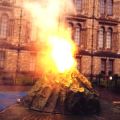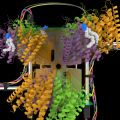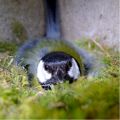
Counting quantum cards
The weirdness of quantum theory has caused some physicists, including Einstein, to suggest that it doesn't give us a picture of the way the world is.
Viewed this way, quantum theory might just be a mathematical tool for making predictions about an object without describing what it's really like. If this was true, a single object could be described by more than one quantum state.
Now scientists at Oxford University and the University of Sydney have shown that the idea of objects with multiple quantum states may be an illusion that could vanish as experimental measurements become more precise. If they are correct it could help to chart the limitations of quantum information processing [QIP].
A report of the research is published this week in Physical Review Letters.
The team liken trying to understand the nature of objects from experimental observations of quantum states as a bit like trying to determine how a playing card was chosen from being dealt a single playing card.
'Imagine a deck of 52 playing cards is shuffled by a special shuffling robot,' explains Owen Maroney of Oxford University, an author of the study. 'The robot has two settings, with the first it deals you a red card drawn at random and with the second it deals you one of the four aces at random. You have to deduce what's really going on from just one card, but if you are dealt the ace of hearts then you can't distinguish if the robot was using setting one or two.'
This is because the cards dealt out by settings one and two overlap in the case of the ace of hearts. Two different quantum states can also show 'indistinguishability' – sometimes you just can't tell whether an object is in one quantum state or another. This led some physicists to suggest the same explanation.
'Rather like with the playing cards, when quantum states seem to overlap the problem could lie in the way that the state is prepared,' Owen tells me.
'What we have shown is that this puts a strong limitation on experiments performed on three different states, and we've found quantum states that exceed this limitation.'
This question of whether quantum states are grounded in reality or not is an important one for anyone trying to use the 'weirdness' of the quantum world to do advanced calculations or form the basis of a quantum computer.
'We're exploring the fundamental limits of what information can be squeezed out of quantum states from what we can detect,' Owen explains.
The team are currently working with three different labs on experiments to see whether the limitations they have scoped out can be tested.
'The best experimentalists are only just reaching the 99% accuracy in reading quantum states that we need to be able to test our ideas,' Owen says. 'We still don't know for sure what the real boundaries are between what classical and quantum computing can do, it may be that we are reducing quantum problems to classical ones. Our work isn’t just about the limitations; it could lead to new opportunities for quantum information processing.'
A report of the research, entitled 'No ψ-epistemic model can fully explain the indistinguishability of quantum states', is published in Physical Review Letters.
 Blasting back to the Big Bang
Blasting back to the Big Bang Explosions, volcanoes & risks
Explosions, volcanoes & risks Unfolding role of cell's gatekeepers
Unfolding role of cell's gatekeepers Bold birds show 'live fast, die young' attitude
Bold birds show 'live fast, die young' attitude